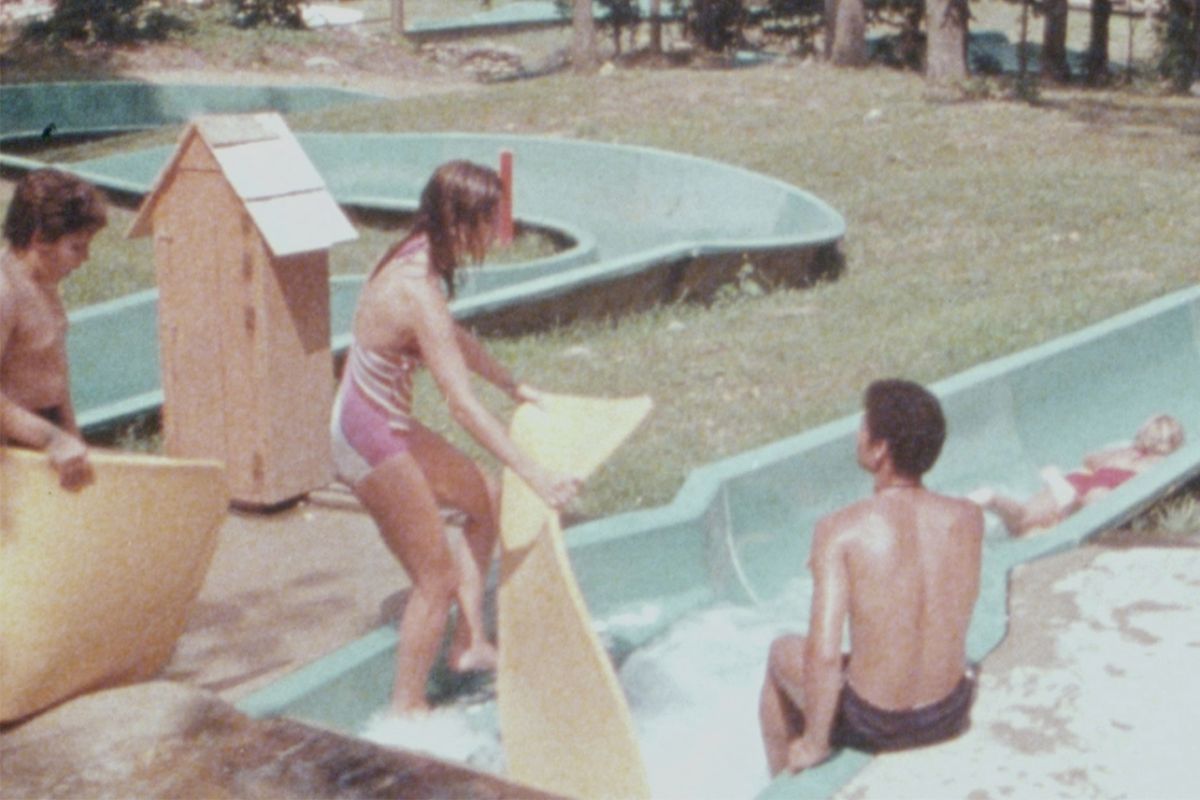Reel Thoughts: HBO documentary “Class Action Park” provides thrills and chills
October 14, 2020
The Monthly
To read about Action Park is one thing. Last summer, Sports Illustrated published a piece on the New Jersey phenomenon known as Action Park, a water park with seemingly zero rules and limitless danger. Author Jack McCallum’s retelling of Action Park’s 1980s heyday read like a mythological legend passed down through generations, with each daring feat more unbelievable than the last.
To watch Action Park is an entirely different experience, one that capitalizes on the capabilities of documentary film in introducing this generation to a park so wild it must be seen to be believed.
The documentary “Class Action Park,” released in late August on the HBO Max streaming platform, uses actual footage of adolescents diving off 20-foot cliffs into crowded, frigid pools and park patrons crashing off ill-constructed rides, interspersed with interviews of now-grown Action Park regulars. Most impressively, the documentary captures the duality of a historical aberration, harkening back to its rise with equal parts nostalgia and horror.
“Class Action Park” is gifted with an outlandish premise even Hollywood couldn’t make up. The park opened its doors in the 1980s in Vernon, New Jersey as one of the first major water parks in the country. But founder Gene Mulvihill had his sights set much higher. He set out to make a park high on freedom, short on rules and guaranteed to provide a great time.
As the documentary shifts from ride to ride, it becomes clear that Mulvihill’s dreams have been realized, for better and for worse. There’s The Tarzan Swing, a short rope swing leading to a 10-foot drop into a frigid stream; Cannonball Loop, a fully enclosed loop-the-loop built by amateurs; and a ball ramp made of PVC piping that was so hazardous that it didn’t make it past the testing stages. “Class Action Park” shows some of these rides in action, while resorting to cartoon animations and interviews to tell the horror stories of others. Interviewees detail unspeakably gruesome injuries as the stuff of legend, while noting that the omnipresent danger was an essential ingredient to the fun.
“Class Action Park” also investigates the darker side of the park, and there is no shortage of material to cover. The bruises and broken bones aren’t aberrations — between poorly built rides, snake-infested waters, alcohol and negligent lifeguards, it becomes obvious that Action Park was set up to fail patrons. The footage (in which dense crowds pack an unsanitary amusement park) certainly makes for an interesting watch during a pandemic-induced quarantine. The filmmakers paint an incriminating picture of Mulvihill through his faulty park operations and conscientious abuse of his legal and political power. To see the lives and families that were irrevocably damaged by the park’s lack of ethics is heartbreaking, and the documentary’s sudden tone shift provides a sobering counterbalance to the thrill of the park’s various deathtraps.
Still, the gleam in the eyes of the Action Park employees and patrons is undeniable, and it is the duality, rather than one agenda, that “Class Action Park” underscores. Interviewees express horror of the thought of their children in such a negligent environment, yet proudly display their battle scars of decades prior and speak of the intoxicating adrenaline rushes the haphazard rides pent up.
“Class Action Park” can be interpreted in a multitude of ways — a witness to unbelievable and only-in-the-80s rides or a stern warning against the absence of rules — but it functions tremendously well as a psychological case study. Like, what kind of crazy person would buy a ticket to such a circus? How far could the culture of the park devolve? Who in their right mind would ever devise a mess of this magnitude and go to such immoral lengths to ensure its success?
To many, Action Park was about the experience, and after watching all of those abrasions and dislocated shoulders, I’m content to experience Action Park through the safety of a streaming service, with a couple decades of distance.
Read more from The Monthly: October Edition here
Email: [email protected]
Twitter: @thejohnriker
Related Stories:
—Three years later, “Moonlight still triumphs as the greatest queer film
—Reel Thoughts: Mrs. America is a mirror to unfinished business
—Reel Thoughts: Tiger King is your horrible boss (yes, that one)

